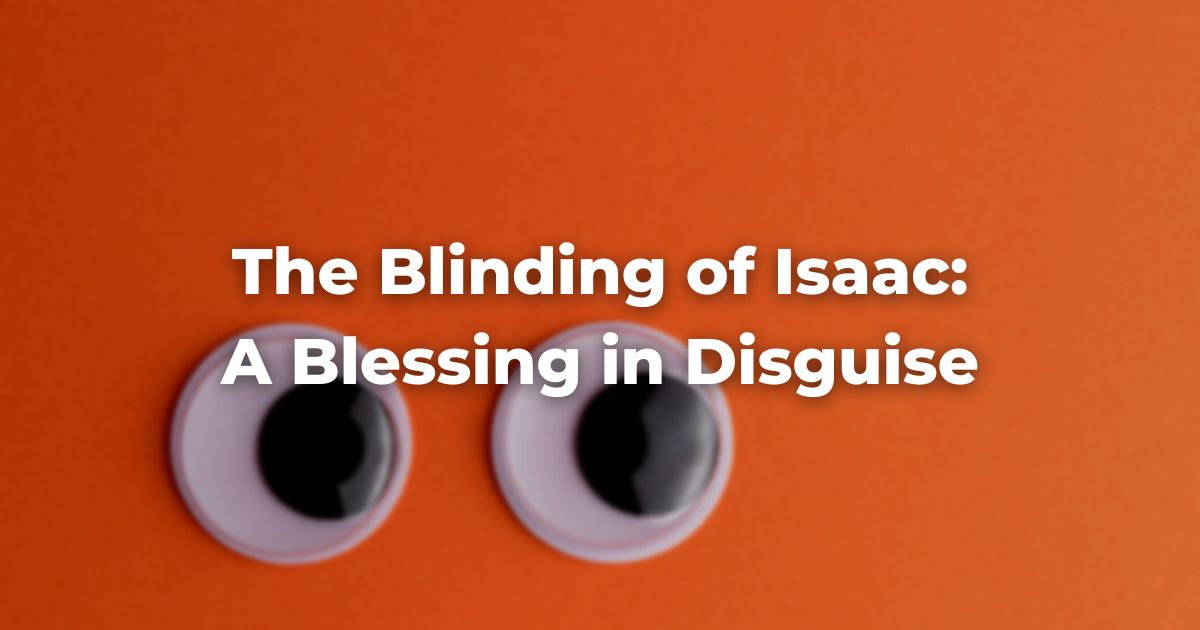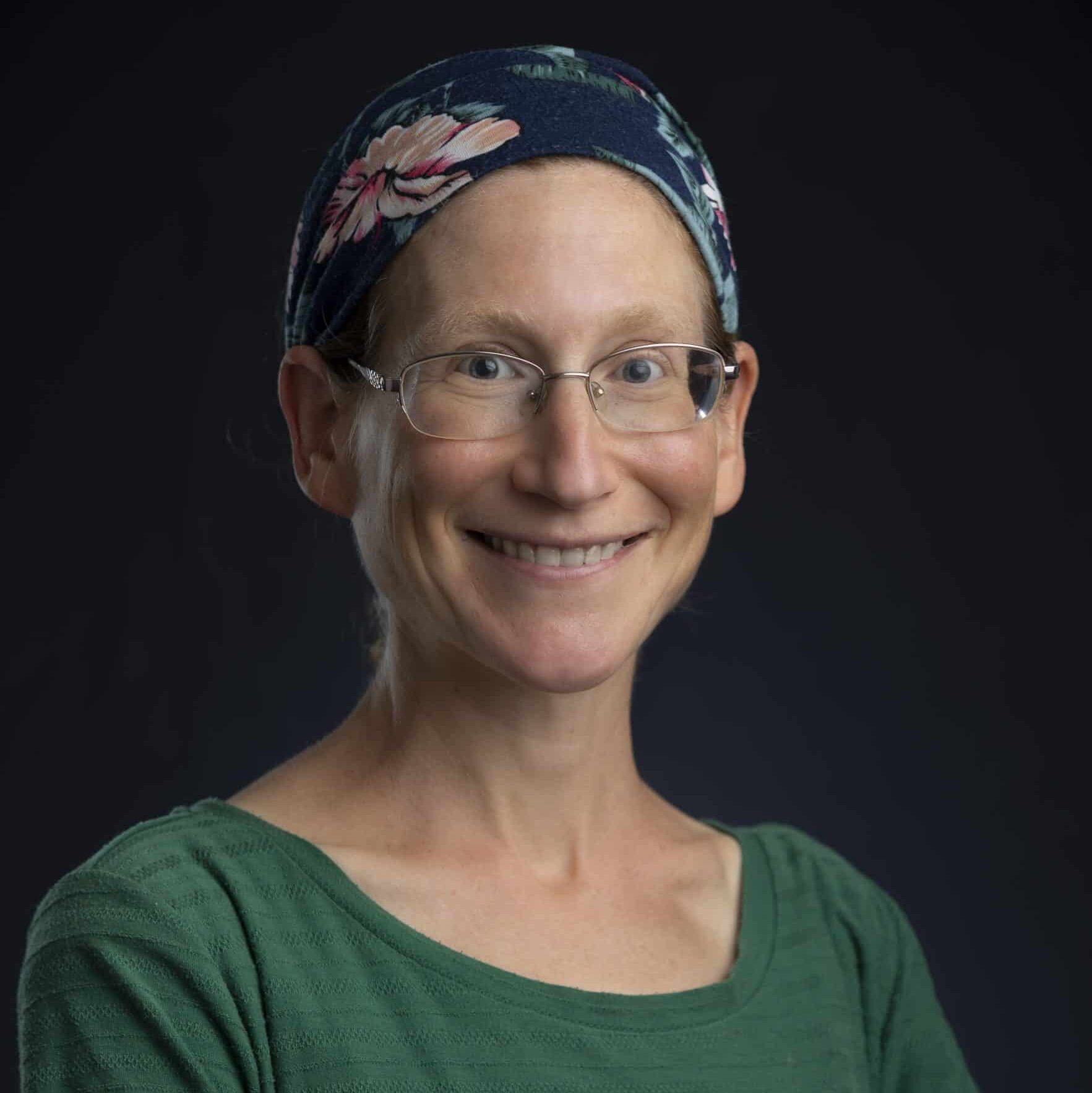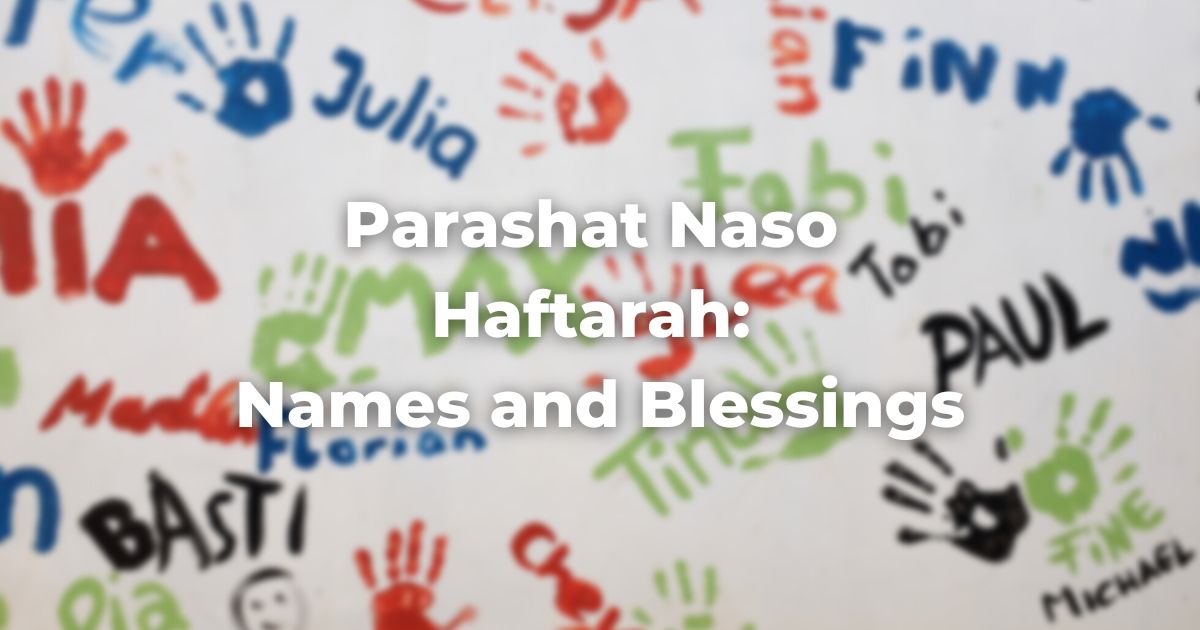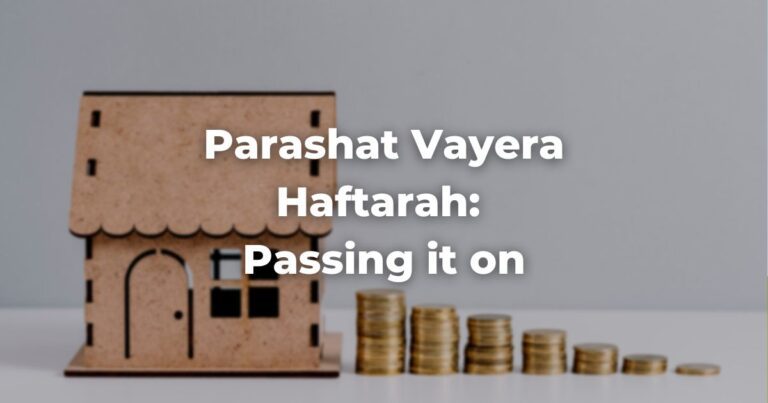In this week’s parashah, an aging Isaac, now the patriarch of the family, bestows the blessing of the firstborn on Jacob instead of Esau when the former tricks him by disguising himself as his twin brother.
The Torah suggests that the reason the twins’ father was unable to detect the ruse was because “Isaac was old and his eyes were too dim to see” (Genesis 27:1).
Isaac’s blindess: Midrash versus text
A simple reading of the verse suggests that Isaac’s vision deteriorated on account of old age, but the midrash proposes additional reasons for Isaac’s blindness that offer us a way of thinking about the implications of our blind spots and our limited sight.
The midrash in Genesis Rabbah 65:10 teaches that God blinded the patriarch as a way of protecting him from seeing his son’s wickedness. The rabbis quote God as saying, “Isaac will go out to the marketplace and people will say: ‘This is the father of that evildoer!’ Therefore behold I will dim his sight and he will stay within his house.”
God blinded Isaac so as to protect him from the shame of having such a wayward son. Along similar lines the midrash suggests that Abraham died five years early—Abraham died at the age of 175, as opposed to Isaac, who died at 180—so that he would not have to live to see Esau worship idols, sleep with betrothed maidens, and commit murder (Genesis Rabbah 63:12).
Unlike Isaac, who merely lost his powers of sight, the candle of Abraham’s soul was snuffed out early so that he would not have to bear witness to his grandson’s depravity.
What does this teach us about blindness?
These midrashimThis word is used in two ways, as both a concept and a literature. As a concept, midrash is the expansive interpretation of biblical texts. The term is used to describe the practice of rabbinic interpretation. As a text, it refers to specific collections of interpretations, particularly from the third to ninth centuries in the Land of Israel and Babylonia. Plural: Midrashim
Read more suggest that sometimes we lose the ability to see our close relatives clearly because if we were to do so—if we were to see them for who they truly are—we would no longer be able to maintain the relationship. Spouses who become blind to each other’s faults can remain in love for decades, and parents who can turn a blind eye to their children’s misdemeanors can continue to welcome those children home.
Isaac needed to become blind so that he could bestow any sort of blessing upon Esau; his blindness enabled him to maintain the family tie in spite of fierce disagreements and antithetical worldviews. So long as Isaac did not witness Esau sleeping with betrothed maidens, he could continue to allow Esau to sleep under his roof.
Alternative Midrashim
The midrash offers another explanation for Isaac’s blindness that is related not to the trauma of the present—not to the trauma of having an evil son but to the traumas of the past.
The rabbis pick up on the unusual turn of phrase used to describe Isaac’s blindness—the TorahRefers to the first five books of the Hebrew Bible, the Tanakh, also called the Five Books of Moses, Pentateuch or the Hebrew equivalent, Humash. This is also called the Written Torah. The term may also refer to teachings that expound on Jewish tradition. Read more literally states that Isaac’s eyes “became dim from seeing.” They link Isaac’s blindness to the trauma of the Akedah, where Isaac saw his father bind him on the altar and raise a knife to slaughter him.
While Isaac was not ultimately pierced by his father’s sword, he was the victim of another piercing encounter, as the midrash relates: “When Abraham bound his son on the altar, the angels wept… and the tears dropped from their eyes into his eyes and were imprinted within his eyes till he became old and his eyes became dim” (Genesis Rabbah 65:10).
Isaac realized that he was being forced to play a role in such a harsh and audacious drama that even the angels were moved to tears of outrage and compassion.
A related midrash suggests that at that moment when he lay bound on the altar, Isaac looked straight up at God, and God responded by blinding him, because “No man may see me and live.” (Exodus 33:20). Both his father and God turn a blind eye to Isaac, and though Isaac’s body is lifted off the altar, a part of him never recovers from the trauma.
The binding of Isaac becomes, according to this reading, the blinding of Isaac.
These midrashim about Isaac’s blindness continue with the rabbinic assertion that “seven things are concealed from humanity.” The rabbis go on to list these seven “blind spots”:
- No one knows when he or she will die.
- No one knows when the end-of-days will come.
- No one can fathom the depth of divine judgement.
- No one can predict what is going to succeed financially.
- No one can intuit what another person is thinking in his heart.
- No one knows what is happening inside a woman’s womb.
- And no one knows when the evil kingdom of Rome will be toppled.
This list is surprisingly relevant today, even in an age of stock market forecasters, ultrasound machines, and political pundits. Who among us can say with certainty which of our investments will succeed, or whether the baby we so eagerly expect will be fully healthy, or when the current political leader will be deposed?
The juxtaposition of this list of seven unknowables with the midrashim about Isaac’s blindness suggest that just as Isaac’s sight was dimmed, blindness is in fact integral to the human condition.
As human beings, our sight is inherently limited; there are things we can never fully see or know.
If we are fortunate, our blindness can become a blessing in disguise, enabling us to remain close to those we love in spite of our disagreements, and deepening our appreciation for life’s mysteries.
See more: Parashat Toldot
Originally posted as part of the Conservative Yeshiva at the Fuchsberg Jerusalem Center’s Torah Sparks. Support Torah learning from the Fuchsberg Jerusalem Center/Conservative Yeshiva for leaders and seekers around the world here.
Authors
-

Ilana Kurshan teaches TalmudReferring to one of two collections, the Jerusalem and Babylonian Talmuds, edited in the 6th century, that contains hundreds of years of commentary, discussion, and exploration of the ideas in the Mishnah. One could describe it as Mishnah + Gemara = Talmud Read more at the CY. She is the author of If All the Seas Were Ink (St. Martin’s Press, 2017) and Why is This Night Different From All Other Nights (Schocken, 2005). She has a degree in History of Science from Harvard and in English literature from Cambridge, and has worked in literary publishing both in New York and in Jerusalem – as a translator, a foreign rights agent, and as the Books Editor of Lilith Magazine. Since October 2020, Ilana has been a regular contributor to Torah Sparks, FJC’s weekly parashat hashavuah blog.
View all posts -



The Fuchsberg Jerusalem Center (FJC) is a home in the heart of Jerusalem where leaders and seekers can find an authentic place in Jewish tradition to call their own. FJC offers opportunities to study, pray and explore within an egalitarian and inclusive setting, creating multiple pathways for finding personal and communal meaning.
View all posts






